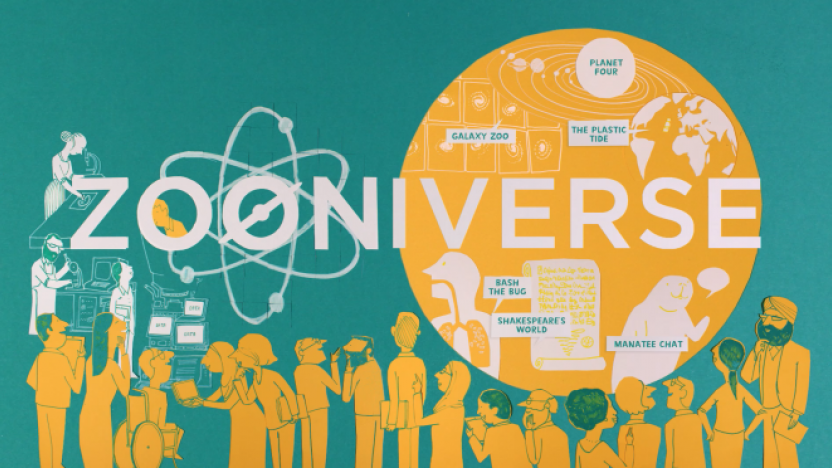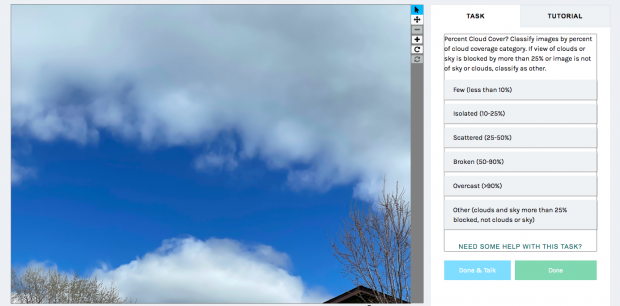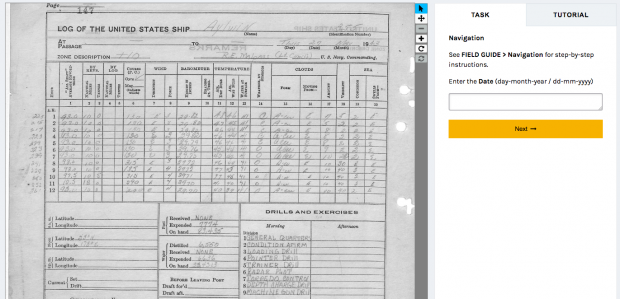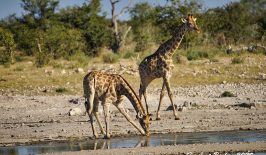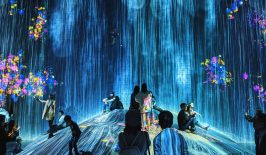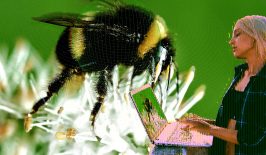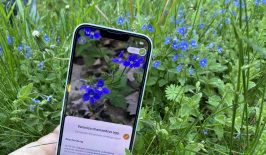Scientific projects come in all shapes and sizes, with varying degrees of support, both financial and practical. With the aid of modern tools, even small teams can gain vast amounts of data, perhaps even too much. Sifting through reams of information, such as photographs, satellite imagery or historical records, could take a small research years, if not decades, to complete on their own. Luckily, a collaborative citizen science website is helping research teams connect with thousands of willing volunteers who help carry the burden, and for free.
Zooniverse is an online collaborative platform that aims to provide people-powered research to research teams of all sizes. Their approach is fairly straightforward: over a million users have volunteered their time to work through diverse datasets related to a wide range of research topics, from climate protection, to history and literature.
Volunteers require no previous experience, but work through data following a simple set of instructions, transcribing information or answering basic questions. The entire project functions via the ‘wisdom of the crowd’ concept which suggests accuracy increases as more people look at a particular piece of data. Once enough contributions have been made, the Zooniverse platform can also make estimates on how likely errors were to occur, further assisting in refining the process. In some cases, the results are used to train artificial intelligence systems. Zooniverse also provides additional communication tools for the researchers and collaborators, including forums, to ensure they can respond to queries or other questions.
As a result of Zooniverse collaboration, hundreds of research papers have been submitted, especially in the areas of space and biodiversity. Although volunteers can get involved in a wide range of topics – from transcribing historical criminal records to listening to mysterious bursts of radiation from space – below are some of the climate science-related projects to get involved in:
NASA Globe Cloud Gaze
Although satellite imagery can provide a great overview of weather systems, they can always be more accurate and contextualised better. Within the NASA-partnered CLOUD GAZE project, volunteers examine photographs of the sky and provide feedback on the amount and type of cloud cover in the photograph. This is then used to create comparisons with other data sources like satellites, surface weather reports or even weather and climate computer models.
Old Weather – WWII
Assessing today’s climate change largely depends on having reliable information on weather systems in the past. Unfortunately, for researchers, humans have only been accurately recording this information since at least the 19th century. Often, those most concerned with recording the weather were sailors, whether they be whalers, military or civilian vessels. The Old Weather project is attempting to decode their historical weather records to better understand the condition of the seas as late as 1849. Currently, the project is trawling through US naval records during the Second World War, and have previously covered 19th century whalers as well as arctic expeditions.
Penguin Watch
Monitoring the conditions of penguins cannot always be easy, largely because they like to gather and nest on remote islands and in inhospitable regions. The Penguin Watch project is asking volunteers to work through thousands of photos from automated photo traps set up in 100 locations around the South Ocean and Arctic peninsula. All together these produce 8000 photos a year, many of them teeming with penguins. The team needs volunteers to simply count the penguins they see, or alternatively, see if they can spot eggs, checks or empty nests.
Artificial Intelligence vs Brain Power
Much has been made in recent years about the powerful potential of artificial intelligence to assist in research and analysis of all kinds, from spotting animals, to developing more efficient rural electrification projects.
When it comes to analysing big data, AI is likely unsurpassed, however human brain power also comes with some advantages. Whereas an AI can spot patterns and make inferences, it is still very much limited to its original learning and cannot think laterally as we humans do. When unexpected variables arrive, artificial intelligence often cannot compute them, while humans can contextualise and understand them. Furthermore, establishing a major AI platform is not cheap. Although there are an increasing number of free open source AIs, bespoke AIs can cost anywhere from 6000 to 300,000 USD, placing them likely outside the budgets of smaller research teams.
Furthermore, projects like Zooniverse not only provide an alternative source of big data analysis, but also create an important bond between researchers and laypeople, allowing them to be involved and take a degree of ownership of scientific and cultural developments.
This article is part of our Special Feature “Civic Tech – Ways Out of the Climate Crisis with Digital Civic Engagement”. You can find all articles of the Special Feature here: Special Feature Civic Tech

The Special Feature is part of the project funding of the German Federal Environmental Foundation (Deutsche Bundesstiftung Umwelt – DBU), in the framework of which we are producing four special features over two years on the topic of “Opportunities and potentials of digitalisation for sustainable development”.
More information here.
